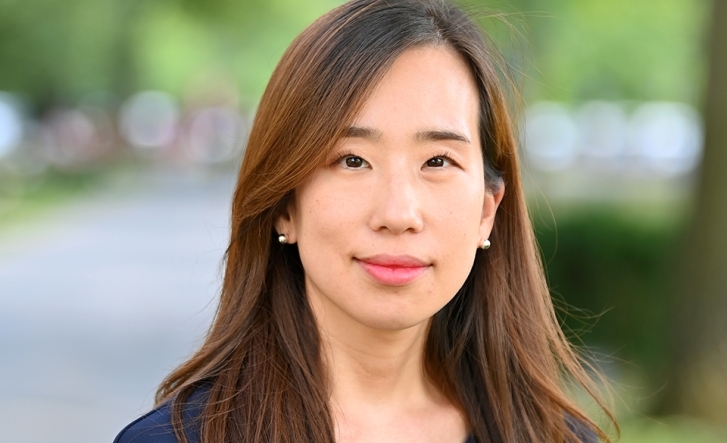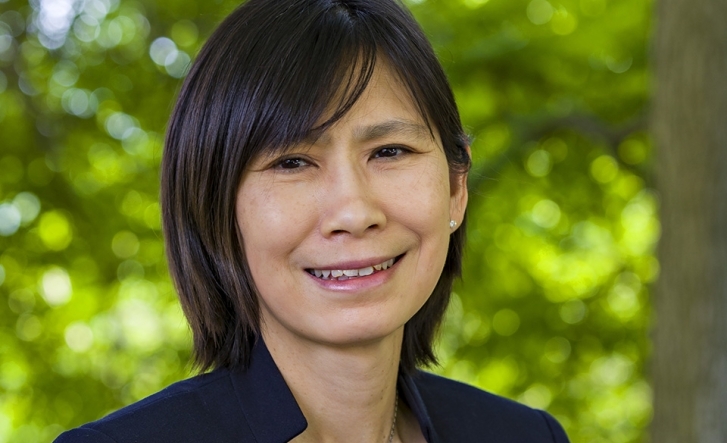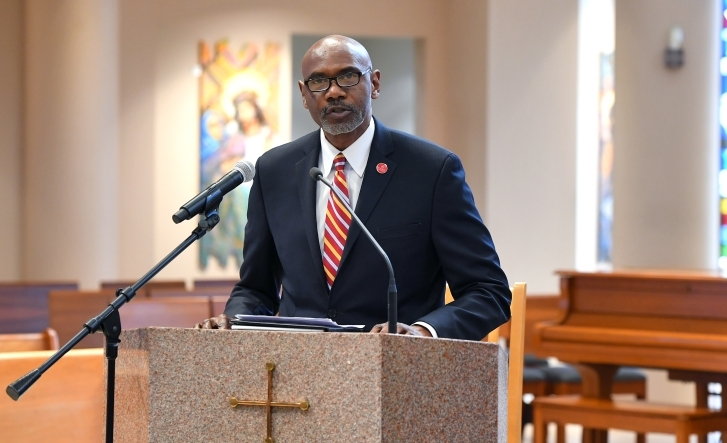Elissa Brown, Ph.D.
“Dr. Mark Chaffin was one of the best – if not the best – child maltreatment researchers I have ever known,” said Dr. Brown. “If I am an eighth of the researcher he was, I’ve done my job better than I could hope. This is an incredible honor.”

The award honors the late Dr. Mark Chaffin, a respected child maltreatment researcher. It recognizes a member of the American Professional Society on the Abuse of Children (APSAC) who has made repeated, significant, and outstanding contributions to research on child maltreatment over their career.
“Dr. Mark Chaffin was one of the best – if not the best – child maltreatment researchers I have ever known,” said Dr. Brown. “If I am an eighth of the researcher he was, I’ve done my job better than I could hope. This is an incredible honor.”
In their nomination, Ms. Citera, Ms. Lee, and Dr. Sharma-Patel recalled Dr. Brown’s commitment to research and work in the community through the Child HELP Partnership, as well as her mentorship.
“I have been mentored by Elissa since I was a volunteer 18-19 years ago and was a graduate student in her lab when she joined the faculty in 2004,” said Dr. Sharma-Patel. “Over the years, I have seen her pursue countless grants in order to study and provide evidence-based interventions to underserved communities and families. Her experience and knowledge of intervention research is vast, and her mentorship model instills the pursuit of best science.”
“Despite a busy schedule of clinical and research activities, Dr. Brown has continued to provide superb supervision and mentorship to her students,” said Ms. Citera. “The students who are lucky enough to benefit from her mentorship are rigorously trained as clinical scientists and will continue her legacy and commitment to conducting both clinical and research endeavors with maltreated youth from diverse backgrounds.”
The mission of the Child HELP Partnership is to better protect and heal children and caregivers from trauma and its emotional impact. Its four areas of focus include: healing families after trauma using leading-edge, evidence-based therapies; empowering multicultural communities to access mental health; learning programs to educate mental health and other professionals about trauma; and public education for parents for parents and other caregivers.
Over the past 15 years, the Child HELP Partnership has provided free, evidence-based mental health services to traumatized children and their caregivers throughout New York City. They offer individual and family therapy to children exposed to trauma and grief group counseling for families who have experienced the death of a significant person. The Partnership’s approach to serving families incorporates best practices for mental health in a model that recognizes individual differences and the importance of the caregiver in a child’s development.
Previously, Dr. Brown was Assistant Professor of Psychiatry at the NYU Child Study Center. She held that role during 9/11 and began using her research and experience in the field of trauma to work with schools south of Canal Street and families of first responders.
“I came to St. John’s to mentor,” she said. “I love being at St. John’s and growing the next generation of trauma psychologists. Once they train here in Queens, they are ready to work anywhere.”
The model of treatment and research she oversees at the Child HELP Partnership blends her dual loves of research and community activism. “We get to help children as we study them,” she said.
As an undergraduate student at the University of Pennsylvania, Dr. Brown began studying psychology alongside volunteer work at a children’s hospital and with organizations advocating against rape. Throughout her graduate program at SUNY Albany, Dr. Brown continued to pursue a passion for work in the community through rape crisis counseling. She then completed an internship at the National Crime Victims Research and Treatment Center in Charleston, SC.
Today, Dr. Brown has jumped into action to mobilize the Child Help Partnership’s resources in response to the COVID-19 pandemic. She and her team are working to help community members recognize trauma and deploy evidence-based therapies to minimize its effects on children.
For students interested in pursuing a career related to trauma, Dr. Brown advises seeking out mentorship opportunities. “I have been so lucky with the mentorship I have received along the way, and strong mentorship makes such a big difference,” she said.
The St. John’s students who have benefited from Dr. Brown’s mentorship over the years certainly agree.



